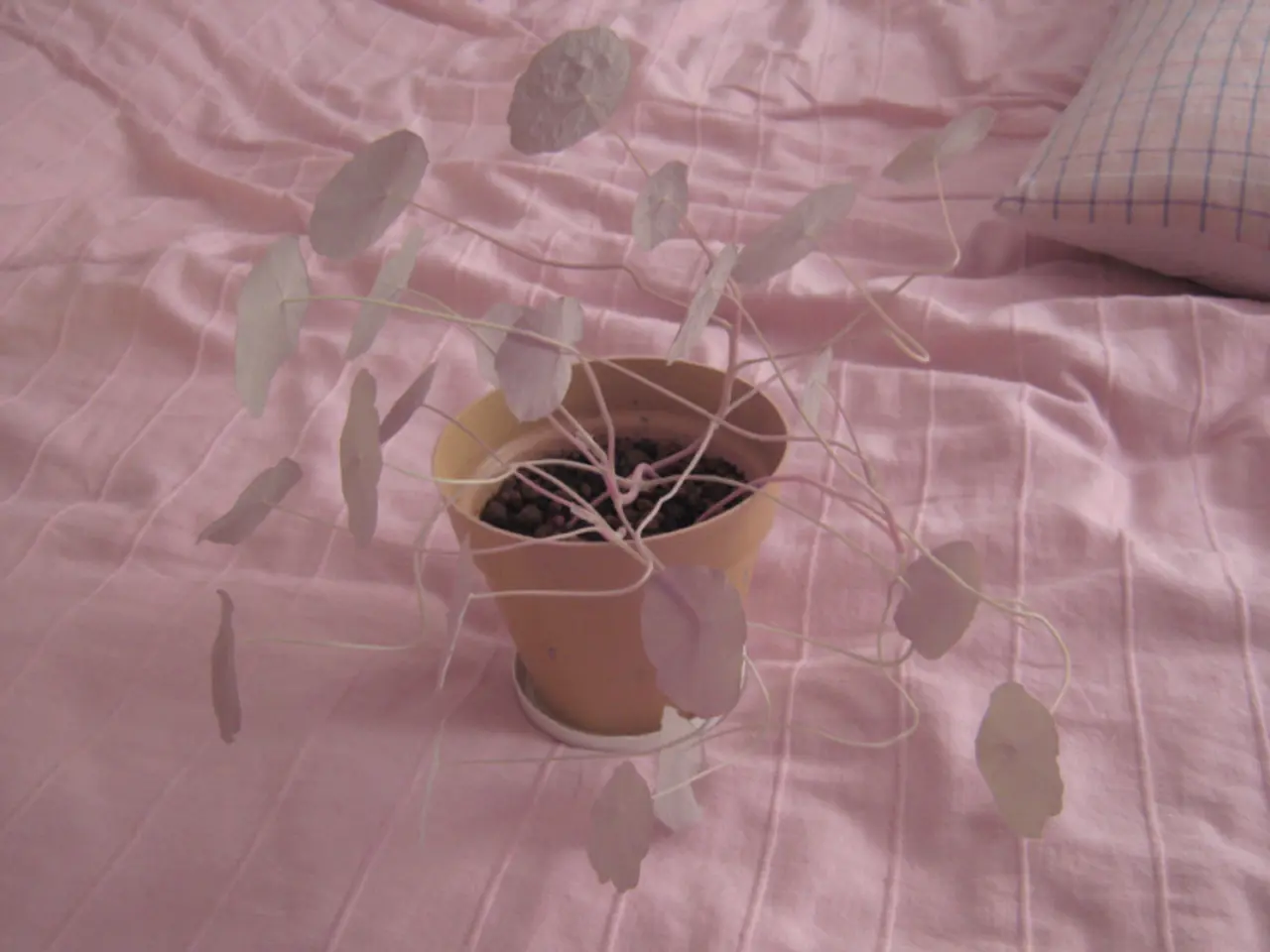Common Odors Prove Effective Against Bed Bugs
Bed bugs are a persistent pest that can cause discomfort and sleepless nights. However, there are several natural solutions derived from essential oils and common household items that can help deter these unwelcome guests.
Lavender, with its calming fragrance, is one such natural repellent. Containing linalool, a natural alcohol that is overpowering to bed bugs, lavender oil can be diluted and sprayed around the bedroom, particularly on bed frames, mattress edges, baseboards, and other suspected hiding places.
Citronella, widely known as a mosquito repellent, is also effective against bed bugs. Citronella candles or sprays can fill a room with its pleasant scent, which is repelling for bed bugs.
Peppermint oil, known for its strong scent, is another natural deterrent. Using peppermint oil in problem areas can discourage bed bugs and other pests from settling.
Tea tree oil, with its pine-like fragrance, can repel pests and can be applied to surfaces or used in soaked rags to distribute the scent.
Basil leaves, with their fresh, peppery scent, contain volatile compounds like estragole and linalool, which confuse and irritate bed bugs. Fresh basil leaves can be boiled in water, strained, and spritzed on fabrics and crevices.
Orange peels, when simmered in water, release d-limonene, a compound that's highly effective at repelling pests like bed bugs. The oil in the peel acts as a natural insecticide, targeting the bug's outer shell and respiratory system. A DIY citrus spray can be created using orange peels for mattress seams, curtains, and bedposts, and fresh orange peel can be rubbed directly on furniture or window sills.
Geranium essential oil, particularly rose geranium, is a gentle deterrent against bed bugs. It can be used in a spray bottle with water to mist linens, curtains, or the area under the mattress.
Vinegar, with its sharp, acidic smell, helps break down odors and bacteria and overwhelms bed bugs' scent receptors, making it harder for them to detect their surroundings and track down potential hosts. Vinegar can be used in a spray bottle along mattress seams, into wall cracks, and around baseboards where bed bugs are known to hide.
While these methods can help deter bed bugs, they are best used as preventative measures or in conjunction with professional treatment for infestations, as repelling scent alone may not completely eradicate a bed bug problem.
In summary, using lavender, citronella, peppermint, tea tree oil, basil, orange peels, geranium essential oil, and vinegar can create a pest-unfriendly environment that helps to keep bed bugs away naturally.
- In addition to their calming properties, lavender's natural components, such as linalool, serve as a deterrent against bed bugs, when diluted and sprayed throughout the bedroom.
- Citronella candles or sprays, commonly used for mosquito repellent, also provide an effective barrier against bed bugs due to their pleasant scent that bed bugs find repelling.
- Peppermint oil, well-known for its strong scent, can be employed in problem areas to discourage bed bugs and other pests from settling.
- Tea tree oil, with its pine-like fragrance, can repel pests and is applied to surfaces or used in soaked rags to distribute the scent.
- Basil leaves, with their fresh, peppery scent, contain volatile compounds like estragole and linalool that confuse and irritate bed bugs, making them a natural, scent-based repellent.
- Simmering orange peels in water releases d-limonene, a compound that effectively repels pests like bed bugs, and a DIY citrus spray can be created using orange peels for various surfaces in the room.
- Vinegar, with its sharp, acidic smell, helps to break down odors and bacteria, and its overwhelming scent can overwhelm bed bugs' scent receptors, making it harder for them to navigate and find hosts.




